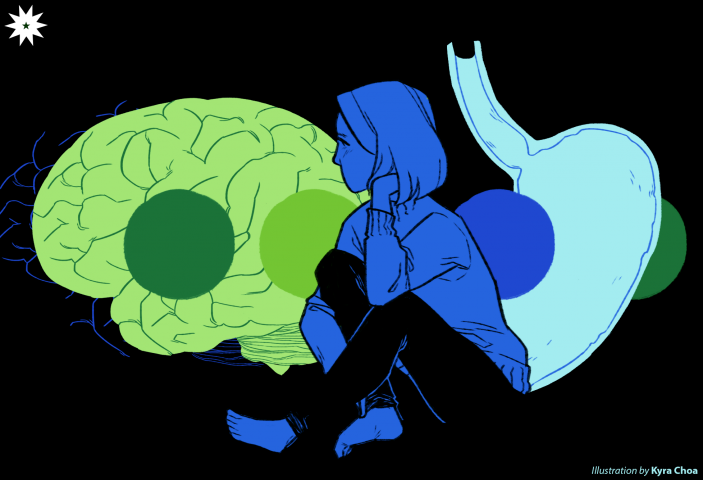Typically seen as concerning only an individual’s physical wellness, the effects of eating disorders can often go beyond surface-level attributes.
According to the fifth edition of the Diagnostic and Statistical Manual of Mental Disorders (DSM-5) published by the American Psychiatric Association, feeding and eating disorders (EDs) are “characterized by a persistent disturbance of eating or eating-related behavior” that results in the “altered consumption or absorption of food and that significantly impairs physical health or psychosocial functioning.”
In the Philippines, approximately 300,000 to a million Filipinos are living with EDs. “Only a few of these patients reach the healthcare system…may be [due to] the inaccessibility of medical care [services],” cites Dr. Carlo Castro, Philippine Psychiatric Association diplomate and psychiatrist.
Behaviors and influences
Among the nine feeding and eating disorders defined in the DSM-5, anorexia nervosa and bulimia nervosa are the “most relevant” in teenagers and young adults, Castro states.
Anorexia nervosa is the “restriction of energy intake relative to requirements” which leads to a body weight lower than what is considered “normal” or “expected” in the context of age, sex, developmental trajectory, and physical health. Those diagnosed with this condition, Castro relays, have a “devastating fear of weight gain”, usually manifested in dietary habits intended to stave off gaining weight and “disturbances” in their perception of body weight and shape.

On the other hand, bulimia nervosa is characterized by a number of criteria: repeated episodes of binge eating, which may be “accompanied by a sense of loss of control,” with such behavior occurring at least once a week over a three-month period; self-assessment being strongly influenced by body shape and weight; and “repetitive compensatory behaviors to avoid weight gain” such as excessive exercise, fasting, and use of laxatives to help loosen bowel movements or of diuretics to prompt urination. Lastly, these bingeing and compensation behaviors are not observed exclusively during episodes of anorexia nervosa.
Castro furthers that cultural and societal pressures “play a big factor” in developing or aggravating EDs. “When individuals tie their self-esteem to weight loss, which is influenced by societal views on standards of beauty, they become more vulnerable to developing mood and eating disorders,” he reasons.
Apart from external pressures, “[researchers] have observed a familial pattern in the distribution of eating disorders, [supporting] the theory that [EDs] may have a genetic component,” Castro articulates. A European study, for example, showed a “high concordance rate of eating disorders in twins as compared to the general population.”.
A ‘bidirectional’ relationship
The functions of bodily systems are deeply interrelated, coordinating to stabilize the body’s internal environment and maintain one’s healthy state.
Coming into the picture are both the psychological and physiological well-being of an individual, which Castro describes as having a “bidirectional” relationship. “Mental health is adversely affected by having eating disorders, and eating disorders may be aggravated by having a mental health concern,” he explains, noting that it is still unclear whether “eating disorders occur because of altered functioning in [brain] structures [or the other way around].”
Magnetic resonance imaging of the brains of individuals with EDs show “structural changes” in some areas, which in turn lead to “functional changes”, according to Castro. Among these structures, he adds, are the cortico-limbic circuits and the insula, which are “involved in appetite and are important in interpreting hunger”, respectively, thus affecting one’s feeling of satiation or fullness.
Neurotransmitters, the chemical messengers that convey signals between neurons, are also implicated. Dopamine and serotonin in particular are important in mood regulation, and dysfunctions in their transmission may result in mood-related disorders such as depression and bipolar disorder.
“When the body does not have enough nutrition, some of the basic life processes are compromised. This [manifests] in the person as a general feeling of [being] unwell,” Castro explains. Several physical symptoms may arise, including feeling lethargic or fatigued, having difficulty in concentrating, and ultimately “not being able to function in work and attend to social relationships.”
Help in many forms
As EDs can “greatly affect” the functions of organs and organ systems, registered nutritionist dietician (RND) Arvin Orajay affirms that RNDs play a role in facilitating treatment. “We can help by designing a personalized meal plan, which includes information on how much someone of their size, age, and sex needs to eat to be healthy,” he explains. “We can also educate them on how their metabolism works and on how to recognize physical cues of hunger and satiety.”
Castro relates that treatment often requires a “multidisciplinary approach”, as it usually involves an RND, a physician, and a psychiatrist. This is seconded by Orajay, who says that RNDs can help patients learn the components of a healthy diet and motivate them to “make the needed changes.” Weight is also monitored by RNDs to ensure that those diagnosed are “healthy enough” to follow their treatment plan, the RND articulates.
The psychiatrist, on the other hand, addresses the mental health issues that come along with—and may even be the cause of—EDs. “This is usually done through supportive psychotherapy through exploration of current thoughts and feelings about the [disorder],” Castro elaborates, adding that medications are also given to supplement therapy sessions and “to improve the chances of recovery.”
These “chances of recovery”, however, are hindered by the stigma surrounding EDs, with discussions about them frequently avoided. To address this, Castro suggests, “We can destigmatize the matter by openly talking about [it]…By giving reliable and good quality information, people will realize that eating disorders can be and should be treated.”
While some may find it difficult to open up about their vulnerabilities, discussions about mental health have helped and will continue to help shed light on neglected yet relevant matters such as EDs. Castro further assures, “[EDs are] not something to be [ashamed] or scared about.”
